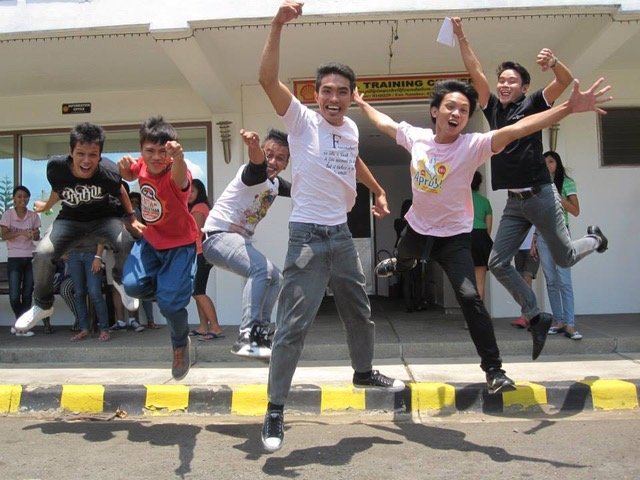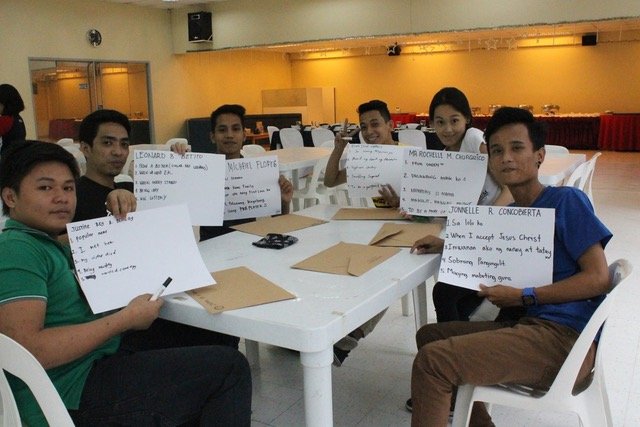Social Enterprises: A Ray of Hope in the Search for Solutions
Negoyso Mo, Bukas Ko, Your Business, My Tomorrow
What are Social Enterprises?
In the search for solutions to address problems of poverty, clean water shortage, limited access to education, environmental degradation, climate change, unequal opportunities and others, social enterprises have emerged that try to address these social and even economic predicaments. In an article in 2006, Mair and Noboa defined them as organizations that make “innovative use of resource combinations to pursue opportunities aiming at the creation of organizations and/or practices that yield and sustain social benefits”. Haugh, another researcher said, “It is a collective term for a range of organizations that trade for a social purpose. They adopt one of a variety of different legal formats but have in common the principles of pursuing business-led solutions to achieve social aims, and the reinvestment of surplus for community benefit.”
Who can be a social entrepreneur?
A wide variety of people - regular entrepreneurs, innovators and strategists – become social entrepreneurs. They are defined as those with “deep commitment to social vision, appreciation of sustainable practices, innovativeness, ability to build social networks and generate viable financial returns” as stated by Nga and Shamuganathan in 2010. Social entrepreneurs have been called change makers and are considered change agents who wish to bring about social, environmental, and even economic improvement among various stakeholders and environments. Dees, in 2001, offered a definition for another related concept, which is ‘social entrepreneur’:
“Social entrepreneurs play the role of change agents in the social sector, by:
Adopting a mission to create and sustain social value (not just private value),
Recognizing and relentlessly pursuing new opportunities to serve that mission,
Engaging in a process of continuous innovation, adaptation, and learning,
Acting boldly without being limited by resources currently in hand, and
Exhibiting heightened accountability to the constituencies served and for the outcomes created.”
A leap for joy and learning!
Social Entrepreneurship In Action; Negosyo Mo, Bukas Ko-Your Business, My Tomorrow
The Philippines, similar to most countries with developing economies is beset by social problems, such as marginalization due to lack of access to education and jobs. To address these needs, civil society and the private sector have launched initiatives One such social enterprise is the Negosyo Mo, Bukas Ko (Your Business, My Tomorrow) Program, an outreach program sponsored by Go Negosyo (Go, Business), a successful national movement which promotes entrepreneurship. During my tenure as program director , we developed a program that provided out-of-school youths (OSYs) with paid internships, enabling them to create a savings account for their future studies, such as a technical-vocation program in restaurant operations, or a college degree in information technology. NMBK’s unique social value proposition consisted of producing OSYs who have finished either a technical-vocational course or a degree and were armed with some working experience, in order to be in a better position to obtain well-paying jobs. Thus through training, mentoring and opportunities to put education skills into action, hundreds of millennials and Gen Z were able to transition from a meaningless and sometimes even desperate existence to a a flourishing one. They are given an opportunity to dream about their future and make their own unique and valuable impact on our country and society.
Sharing and listening during one of the group dynamics sessions
Features of Successful Social Enterprises and Social Entrepreneurship
Successful social enterprises have a clear core social, environmental or cultural goal ; are financially solvent by carrying out business activities ; and invest the majority of profits into their social, environmental or cultural objective. One characteristic is the dependence of social entrepreneurship organizations on other institutions for the acquisition of resources. Organizations need resources for survival and success, but seldom posses all the resources they need. Some resources are found in other organizations, on which they are interdependent. Inter-organizational exchange is necessary, through transactions. Also, dependencies among organizations are created. Social entrepreneurship involves the deployment of various strategies to manage these external constraints, dependencies, and power relations.
Negosyo Mo, Bukas Ko Your Business My Tomorrow
Social entrepreneurship also involves creating a value network. This means converting intangible assets to other forms, so as to realize greater value. Johanna Mair and Oliver Schoen, jointly found in 2007 that “successful social entrepreneurial organizations proactively create their own value networks of companies that share their social vision; develop resource strategies as an integral part of the business model; and integrate their target groups into the social value network”.
Additionally, James Austin, Howard Stevenson and Jane Wei-Skillern (2006), noted that social entrepreneurship calls for the need to manage a wider diversity of relationships with funders, managers, and staff. This includes working collaboratively with other nonprofit organizations, business, and government to attain the resources critical for the organization.
Sharing results of a written exercise
NMBK’s Approach and Outcome
NMBK illustrated this diversity of relationships and the creation of a network of like-minded organizations, through the various stakeholders we gathered together and coordinated in our network. It relied on its supply side organizations to provide the OSYs, which previously included the Department of Social Welfare and Development, the St. Vincent Foundation for Children and the Aging, and the Abot Alam – a previous Department of Education initiative that aimed to profile and integrate a million of the country’s OSYs. For its demand side organizations, NMBK partnered with employer-companies in the Go Negosyo network, such as French Baker, Shopwise, PR Gaz Haus, Mekeni Food Corporation, RFM, and Citimart among others, to provide entry level jobs to the OSYs. NMBK also relied on its training partner, the Pilipinas Shell Foundation Inc. to provide leadership training to the beneficiaries. NMBK widened its network of collaborators, sought more companies who wished to provide jobs to OSYs. In turn, these firms obtained a source of young and motivated workers for their operations. The ROI is manifold; young people have opportunities for economic, personal and social advancement: a ray of hope, so to speak. While the project cycle of NMBK has ended, its participants are shaping their tomorrow by contributing their skills and youthful enthusiasm in our nation’s economy.
The understanding of social entrepreneurship can contribute to creation of more enterprises with social missions, and insights on how to manage them. Morever, social enterprises broaden the spectrum of solutions to pressing problems, that improve the welfare of people in particular and society and the planet, in general. The world will always have problems. Those who want to be part of a the solution need only to offer their resources be it time, funding or expertise, to collaborate with others in the business, education, civil service and other spheres, and form partnerships through social enterprises at the service of people, communities and the environment.
References:
Social Enterprise 101: https://www.youtube.com/watch?v=9_g5RqwW51I
Link to Go Negosyo, which is the foundation and nation-wide movement that fosters and promotes entrepreneurship in the Philippines: https://gonegosyo.ph/
Austin, Stevenson, & Wei-Skillern (2006). Social and Commercial Entrepreneurship: Same, Different, or Both? “ Entrepreneurship Theory and Practice”. Vol 30 Issue 1.
Dees, J.G. (2001) The meaning of "social entrepreneurship." [Online]. Available at: http://www.fuqua.duke.edu/centers/case/documents/dees_SE.pdf.
H. Haugh (2005). A research agenda for social enterprise. Social Enterprise Journal.
J. Mair and E. Noboa (2006). Social entrepreneurship: how intentions to create a social venture are formed. Social Entrepreneurship.
Nga, J.K.H. & Shamuganathan, G. (2010). The influence of personality traits and demographic factors on social entrepreneurship start up intentions. Journal of Business Ethics, 95.
About the Author:
Leah A Macatangay is an educator from the Philippines, with more than 30 years in the education, training, and consulting industries. She is a SoFT Collaborator.




